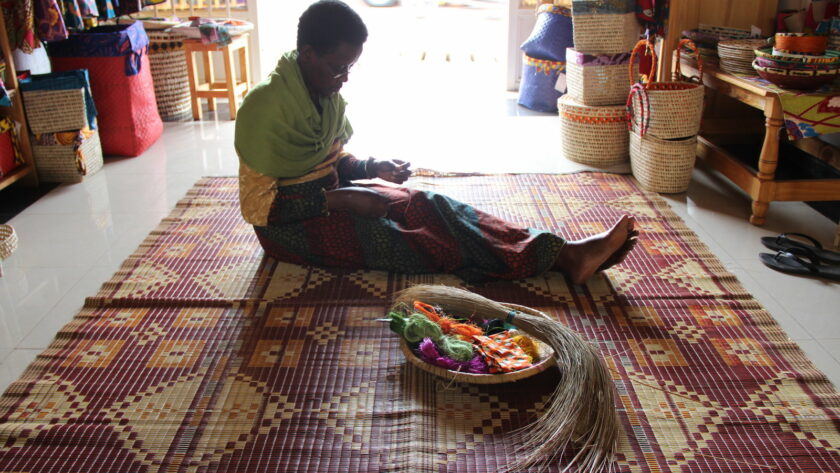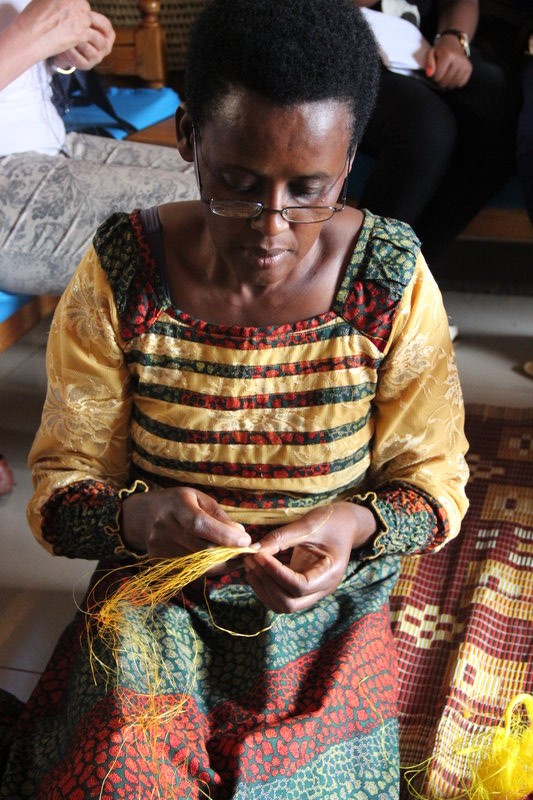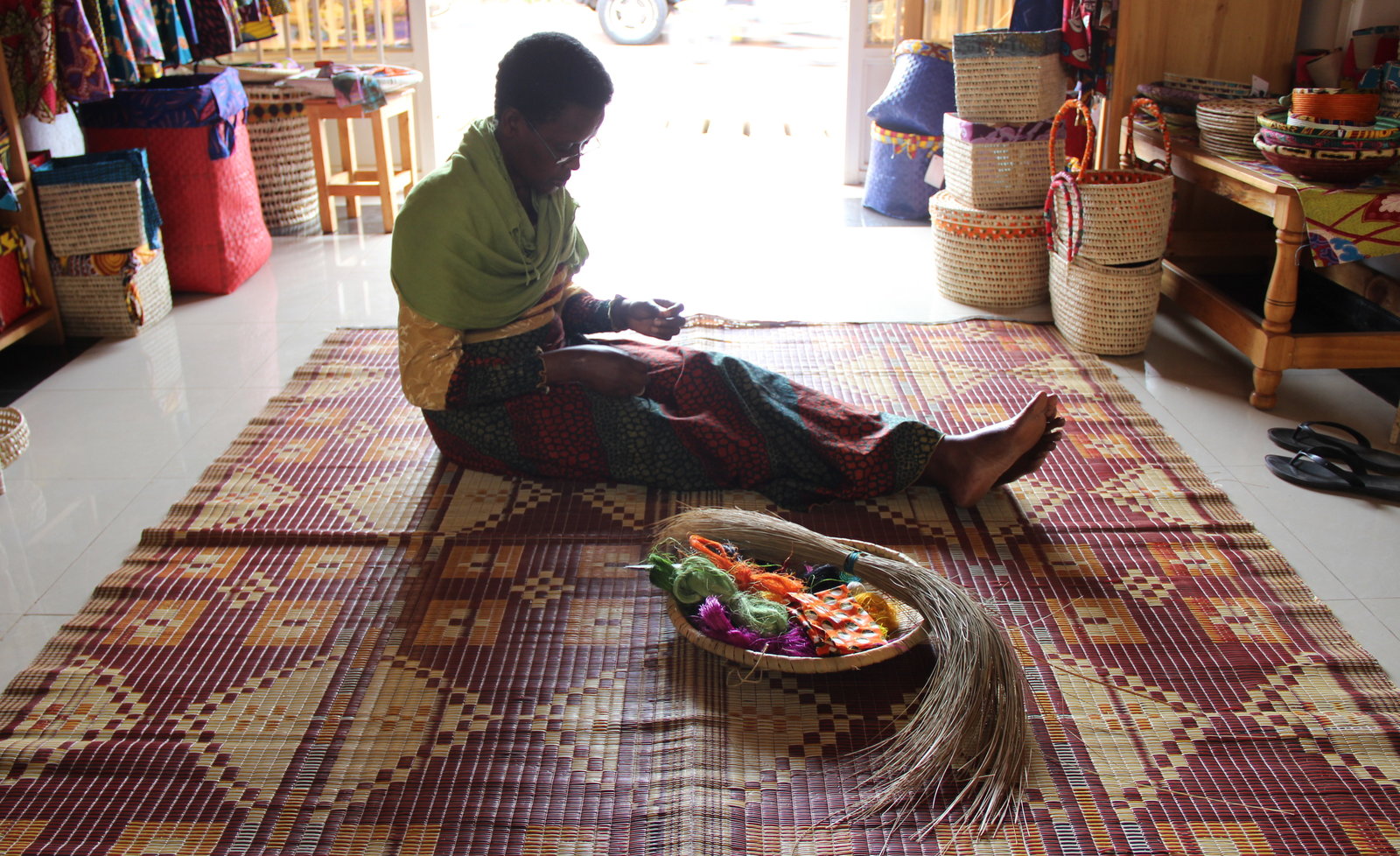
Whether you’re visiting Kigali for a couple of days or living in the city, Grace Mukeshimana is the best person to meet in Rwanda’s capital city for a memorable sisal basket weaving experience. She will happily share her knowledge and skills with travelers who want to know more about the art of basket weaving and jewelery-making using the basket weaving technique.
Culture In Kigali
In the morning, Grace welcomes guests at the Nyamirambo Women’s Center for a 2.5-hour weaving experience. With the help of an interpreter, she educates on the history and cultural importance of the craft in Rwanda, including the entire process, the meaning of every pattern and where the vibrant colors come from. Next, visitors make their own earrings or small Agaseke baskets under the meticulous supervision of Grace. Best of all, you take your creation home, together with additional sisal fiber of the color of your choice and a needle in case you feel like practicing.
This exciting hands-on experience can be booked via Vayando.
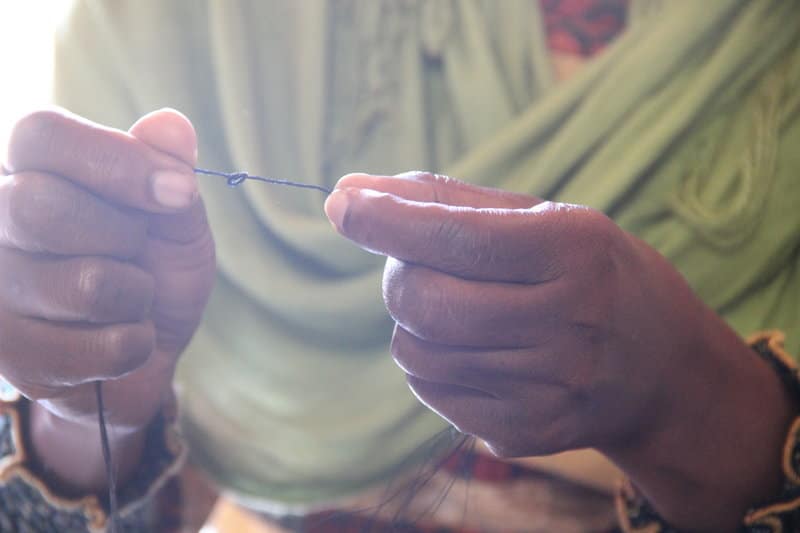
Grace’s Story
Born in Rwanda’s Southern Province in Ruhango, Grace attended primary school for six years. She then had to start looking for an alternative as her parents were farmers and could not afford to pay her school fees for further studies. That is when she started weaving at home.
The skill of basket weaving was transmitted to her through the women of her family who would sometimes gather to weave as part of a social activity. Once a month, she would leave her village to sell in neighboring and somewhat more affluent cities. Most her customers back then were nuns and priests who bought baskets to be sent abroad.
In her late teenage years, Grace went to Kigali for the first time. She tells her story with much emotion:
I was 16, or maybe 18 years old. I was so curious to discover Kigali. I already knew that it was the right place for me. This was the happiest day of my life! My biggest dream was to marry in Kigali and become a mother so that one day I could hear my children saying ‘Mama Mama!’ just like I used to say to my own mother, and give them a bath.
Grace now has four children, three boys and one girl, with the oldest soon starting his Masters Degree. She still recalls how different things were when she was young, more self-sustaining. Her family did not need money to buy food, for example, as they would cultivate their own crops; however, now in Kigali it is hard to get anything without buying it, so she makes sure her children go to school to be able to have a good life in the future without lacking of anything.
To be able to send their kids to school, her husband had to work hard. In fact, for awhile Grace even put her basket weaving business aside. Her husband was the one feeding the family, while she would take care of the children. Sadly, Grace’s husband passed away in 2010, leaving her in no position to afford their home. She struggled for awhile, but after two years she finally found a way to earn an income.
One day, as she was walking around her neighborhood, it started raining very hard. She tried to find shelter and ran toward the closest place in which she thought she could hide. By chance, it happened to be the Nyamirambo Women’s Center. She says:
I did not know much about the center back then; but when I was inside, I was lucky enough to see women making baskets and got all excited asking, ‘What can I do to work here? I know how to make baskets, too!’
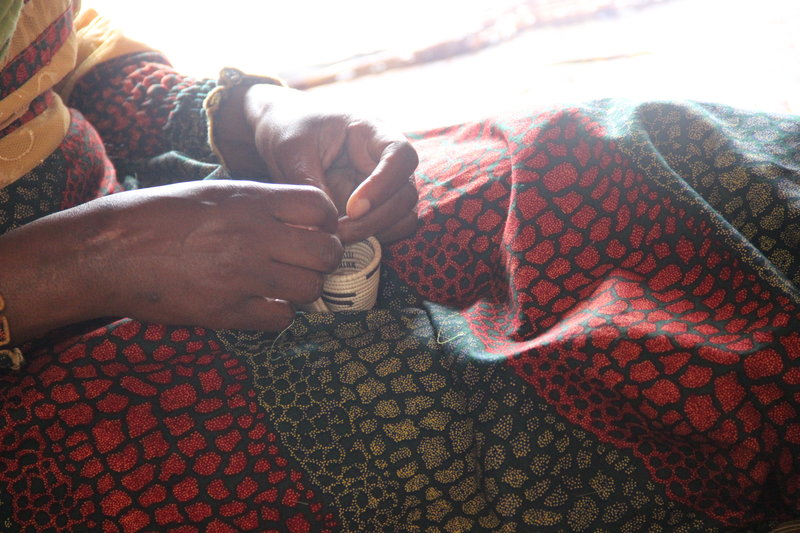
Creating Employment For Women
Since that day, she has been working at the Nyamirambo Women’s Center weaving beautiful baskets, earrings and other functional and innovative products using the same technique. All products are sold at Umutima, the shop specializing in children’s and household ware which is located in the center. Umutima, meaning “heart” in Kinyarwanda, creates employment for women in the community who are paid fair wages and generates an income for the center to make it more sustainable.
Grace also teaches other women how to weave with enthusiasm. For her, coming across the center on that rainy day was the best thing that could have happened to her after her husband passed away. She found her way out of loneliness and met other women, all with their own, sometimes similar, set of struggles. They always discussed and found solutions to their problems together. It was a relief for Grace to finally be in a place where she felt comfortable enough to share her thoughts and earn an income doing what she loves at the same time.
Also Check Out:
Artisans Of Rwanda: Meet Kayiranga, The Imigongo Artist
Rwanda Travel: 5 Immersive Cultural Experiences In Kigali
Have a cultural recipe to share? We want to know!
Latest posts by Sarine Arslanian (see all)
- How To Find Your Purpose Through Mayan Astrology In Guatemala - Jul 5, 2017
- 6 Innovative Tools That Make Travel More Accessible - Jan 23, 2017
- Serenity & Sustainable Tourism On Kenya’s Galu Beach - Nov 21, 2016
- Mursi Women Redefine Beauty With Clay Plates - Mar 30, 2016
- How One Conscious Lifestyle Brand Is Using Fashion To Empower Women - Sep 23, 2015

